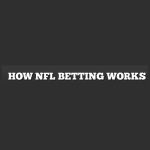Understanding Horse Racing Odds
Horse racing odds are a fundamental aspect of betting on horse races. Understanding how to read odds is crucial for making informed betting decisions. Odds in horse racing are typically presented in fractional form, such as 2/1 or 5/1. The first number represents the potential profit you could make if you bet the second number, plus your initial stake. For example, a horse with odds of 2/1 would mean you could make $2 in profit for every $1 you bet if that horse wins.
Another common way of showing odds is in decimal form, which is popular in Europe and Australia. In this format, the odds represent the potential total return, including your original stake. For instance, odds of 3.00 would mean you would receive $3 for every $1 you bet if your selection wins. It’s important to note that lower odds indicate a higher likelihood of the horse winning the race, while higher odds suggest the horse is less likely to win. Understanding how odds work can help you assess the risk versus reward when placing bets on horse races.
Types of Horse Racing Bets
When it comes to horse racing bets, there are various options available for punters to choose from. One of the most common types of bets is the Win bet, where you predict the horse that will finish first in the race. Another popular bet is the Place bet, where you wager on a horse to finish in either first or second place.
Exacta is a type of bet where you select two horses to finish first and second in the exact order. Quinella is similar to Exacta but in any order, which means you win as long as your selected horses finish first and second. Trifecta takes it one step further by requiring you to pick the first, second, and third-place horses in the correct order. Superfecta is the most challenging bet, where you predict the first four horses to finish in exact order.
Choosing the Right Horse to Bet On
When it comes to choosing the right horse to bet on, there are several key factors to consider that can increase your chances of success. One of the most important aspects to evaluate is the horse’s past performance, including recent form, speed, and consistency. Analyzing the horse’s track record in different race conditions can provide valuable insights into its potential performance in upcoming races.
Additionally, it is crucial to take into account the horse’s trainer and jockey. Experienced and successful trainers and jockeys can significantly impact a horse’s performance on race day. Understanding their track record, strategies, and overall reputation in the racing industry can help you make more informed decisions when selecting a horse to bet on.
Factors to Consider Before Placing a Bet
Before placing a bet on a horse race, it is crucial to analyze the recent performance of the horses and the jockeys. A horse that has shown consistency in its past races and a jockey with a good track record can be strong indicators of potential success. Additionally, pay attention to any recent injuries or changes in the horse’s training routine as these factors can impact its performance on race day.
Another important factor to consider is the track conditions for the upcoming race. Different horses perform better on specific track surfaces such as dirt, turf, or synthetic. Understanding how a horse has performed on similar track conditions in the past can help you make a more informed decision when placing your bet. Moreover, consider the distance of the race and whether the horse has previously shown success at that particular distance.
Setting a Budget for Horse Racing Betting
When it comes to horse racing betting, one of the key aspects to consider is setting a budget. Establishing a budget before placing any bets can help ensure responsible gambling and prevent overspending. By determining how much money you are willing to allocate for horse racing betting, you can enjoy the thrill of the sport without risking financial strain.
Setting a budget for horse racing betting involves assessing your disposable income and determining an amount that you are comfortable potentially losing. It is essential to view horse racing betting as entertainment rather than a guaranteed way to make money. By setting a budget and sticking to it, you can maintain control over your gambling activities and make more informed betting decisions.















